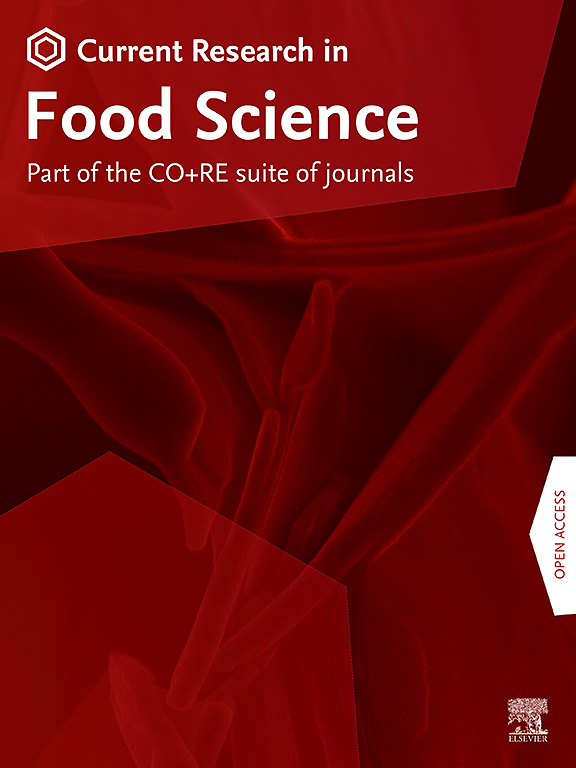Antioxidant activity and mechanism of action of phycocyanin in bulk sunflower oil and respective oil-in-water emulsion
IF 6.2
2区 农林科学
Q1 FOOD SCIENCE & TECHNOLOGY
引用次数: 0
Abstract
This study compared the inhibitory mechanism of phycocyanin in sunflower oil with its activity in a sunflower oil-in-water emulsion. Additionally, the impact of lecithin on the inhibitory mechanism of phycocyanin in sunflower oil was evaluated. A sigmoidal model effectively described the oxidation kinetics. In both sunflower oil and sunflower oil-in-water emulsion, phycocyanin pro-oxidatively attacked lipid hydroperoxides besides inhibiting lipid hydroperoxides. The antioxidant activity of sunflower oil containing phycocyanin and lecithin was 2.2-fold greater than that of sunflower oil containing lecithin alone. The addition of lecithin enhanced the interfacial activity of phycocyanin and altered its hydrogen donating and electron transfer mechanisms. Also, by comparing the reverse micelles size samples of sunflower oil samples containing lecithin, we discovered that lecithin can enhance the potency of phycocyanin by boosting the ability of reverse micelles to incorporate lipid hydroperoxides within their structure.

花蓝蛋白在散装葵花籽油及其水包油乳剂中的抗氧化活性及作用机理
本研究比较了向日葵油中藻蓝蛋白的抑制机制及其在向日葵水包油乳剂中的活性。此外,还探讨了卵磷脂对葵花籽油中藻蓝蛋白抑制机制的影响。一个s型模型有效地描述了氧化动力学。在葵花籽油和葵花籽水包油乳液中,藻蓝蛋白除抑制脂质氢过氧化物外,还能促进氧化攻击脂质氢过氧化物。含有藻蓝蛋白和卵磷脂的葵花籽油的抗氧化活性是单独含有卵磷脂的葵花籽油的2.2倍。卵磷脂的加入提高了藻蓝蛋白的界面活性,改变了其供氢和电子传递机制。此外,通过比较含有卵磷脂的葵花籽油样品的反胶束大小,我们发现卵磷脂可以通过提高反胶束在其结构内结合脂质氢过氧化物的能力来增强藻蓝蛋白的效力。
本文章由计算机程序翻译,如有差异,请以英文原文为准。
求助全文
约1分钟内获得全文
求助全文
来源期刊

Current Research in Food Science
Agricultural and Biological Sciences-Food Science
CiteScore
7.40
自引率
3.20%
发文量
232
审稿时长
84 days
期刊介绍:
Current Research in Food Science is an international peer-reviewed journal dedicated to advancing the breadth of knowledge in the field of food science. It serves as a platform for publishing original research articles and short communications that encompass a wide array of topics, including food chemistry, physics, microbiology, nutrition, nutraceuticals, process and package engineering, materials science, food sustainability, and food security. By covering these diverse areas, the journal aims to provide a comprehensive source of the latest scientific findings and technological advancements that are shaping the future of the food industry. The journal's scope is designed to address the multidisciplinary nature of food science, reflecting its commitment to promoting innovation and ensuring the safety and quality of the food supply.
 求助内容:
求助内容: 应助结果提醒方式:
应助结果提醒方式:


